Daniel Reuter – History of the Visit
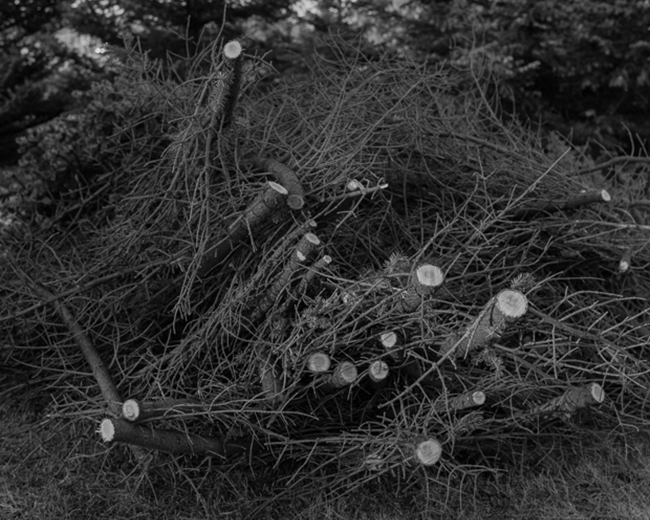
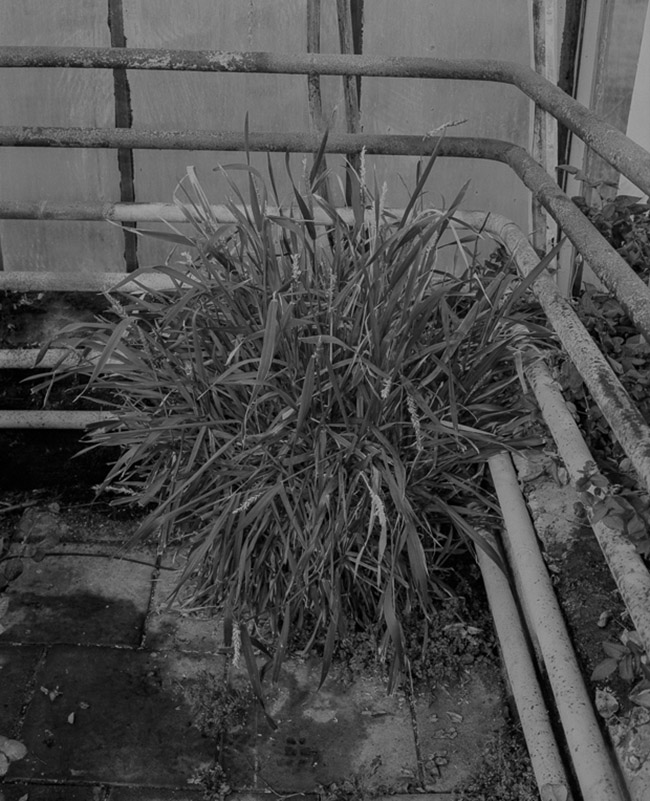
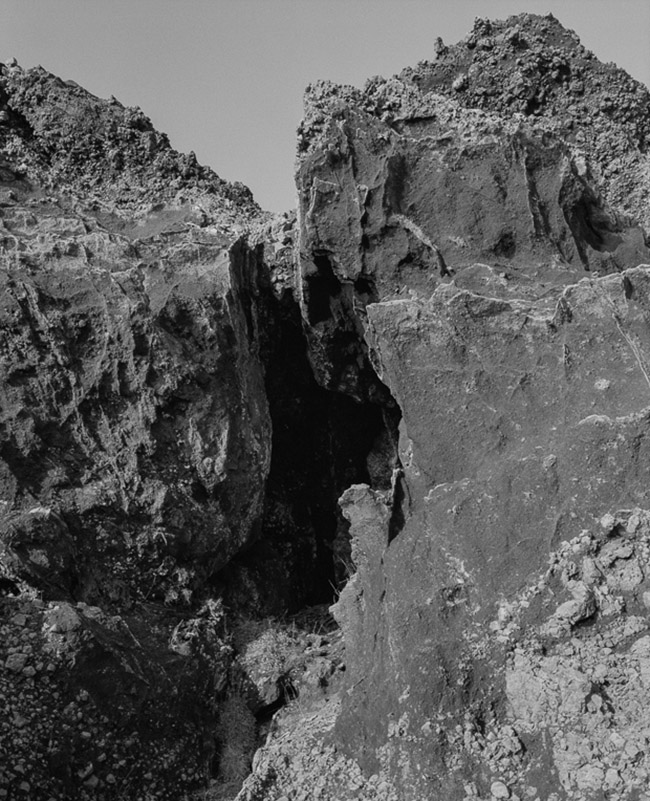

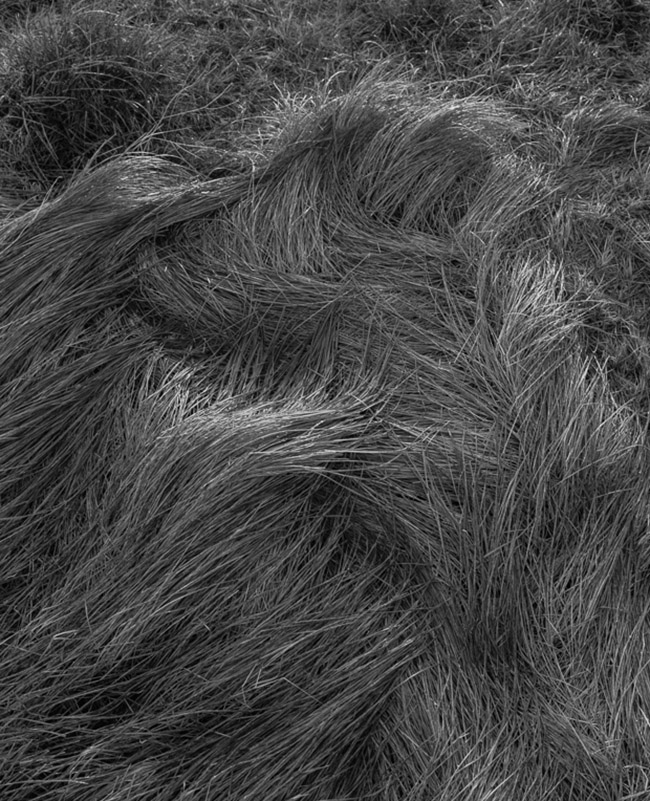
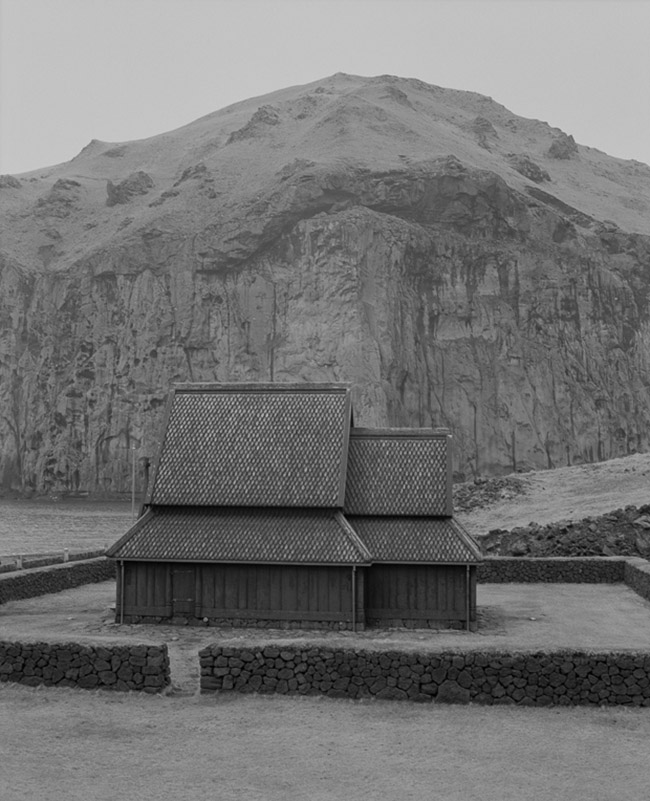
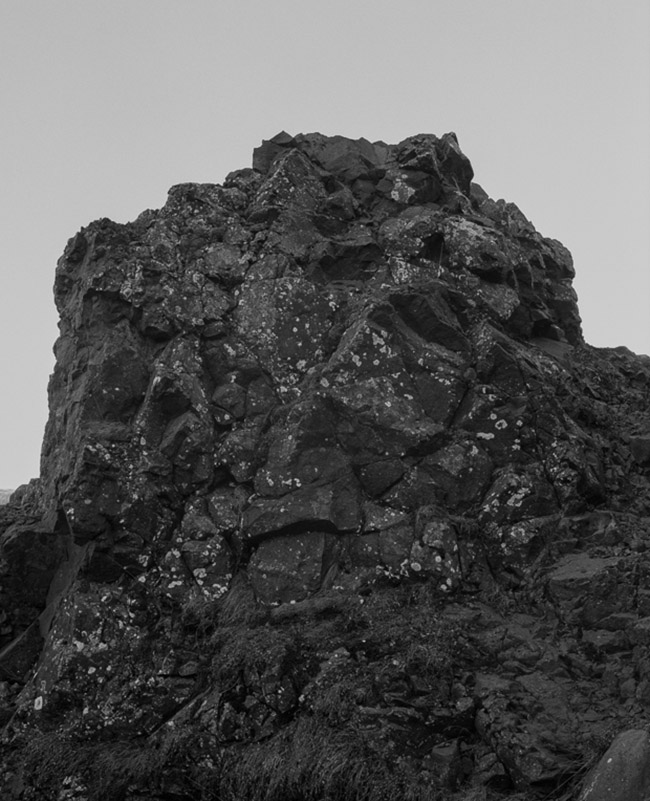
Artist: Daniel Reuter
Title: History of the Visit
Publisher: Peperoni
Year: 2013
BUY
Photographic subjects are usually a distraction. While photography’s indexical nature is its greatest strength, it can also mislead, and point us into dead-ends of limited meaning. However, subject and meaning, while often distinct from one another, are usually entwined. They allow us access, while also pointing outwards towards a possible escape. Daniel Reuter’s History of the Visit is about a visit to Iceland, but looks are deceiving. Formally rigorous and concise, History of the Visit is a journey to the interior — a psychologically taut mood piece of haunting resonance.
Restrained and muted, the dark low-contrast images of the book take us across the landscape of Iceland, but avoid the dramatic vistas or popular sites. Cut branches, closed utility sheds, rocks and moss-encrusted fields are all shown with both close scrutiny and distanced restraint. Images of lichen, rocks and wind-swept grass recall the work of Paul Caponigro and similarly minded naturalist photographers, but strike a more darkly romantic and sinister tone. If Minor White ditched the Gurdjieff and started listening to Sunn O))) and Brian Eno, this is the kind of work he might make. The book’s copy, not always the best source of information, likens the work to electronic music, which seems apt. Although detached and seemingly minimal, the image’s dark tones and themes of obfuscation — closed doors, ropes, towering rock faces and fence-like growth — point to an interiority that is unknowable and beyond our reach.
Visitors are rarely afforded a deeper look at a country. At best, they skirt about the surface and gain occasional glimpses at a place’s depths. Reuter’s images seem to acknowledge this limited perspective of Iceland and don’t attempt to show us a definitive version of the country, not that that is even possible. Like Roni Horn, who also uses Iceland to mine and mirror a deeper psychological territory and investigation, Reuter’s work probes deeply — pointing outwards and inwards. Journeying along with Reuter, we may not stay long, but a visit doesn’t have to last long to affect you deeply.
